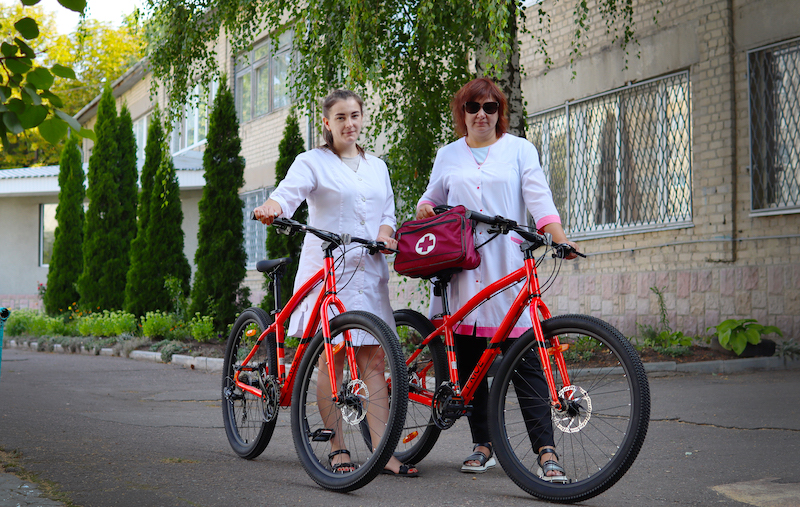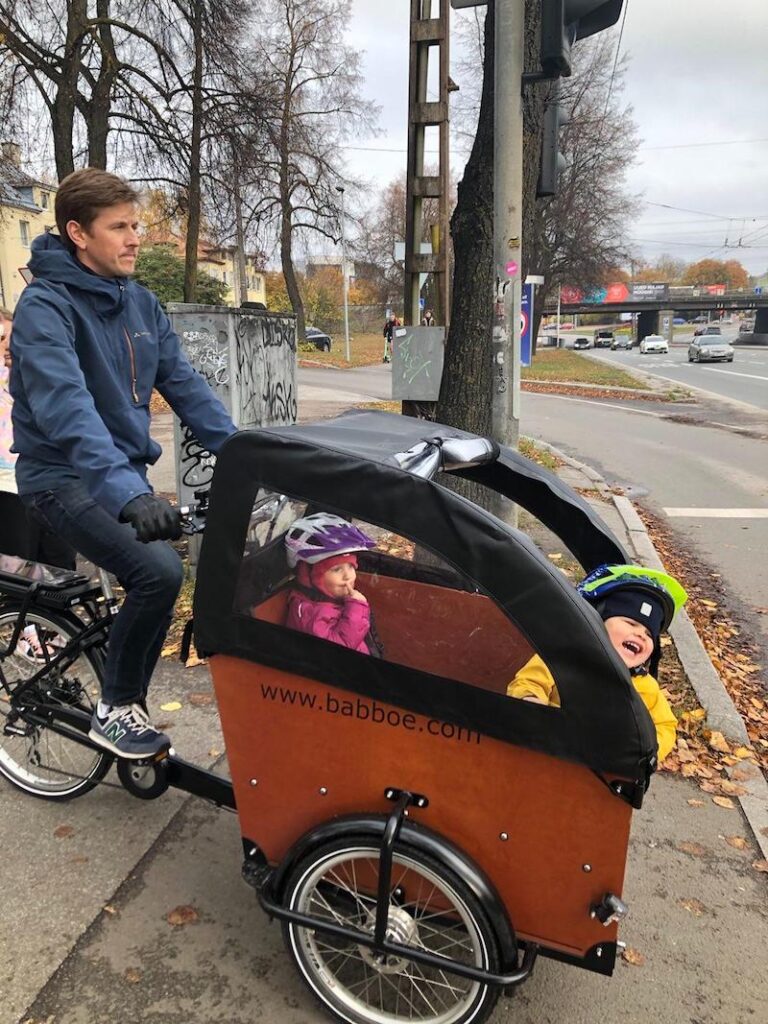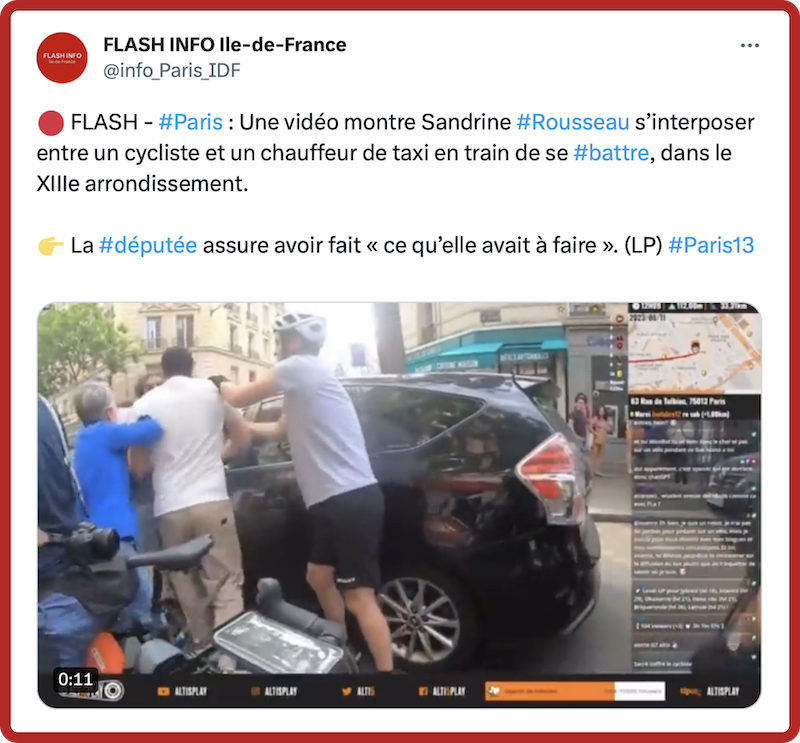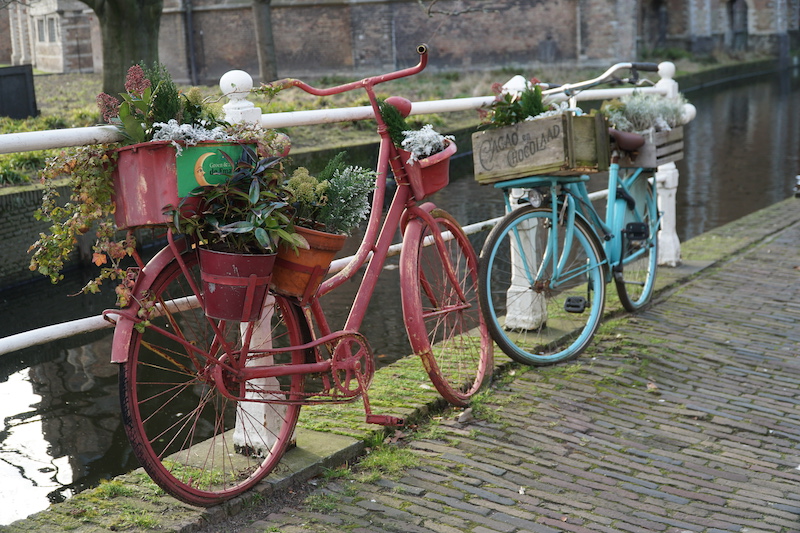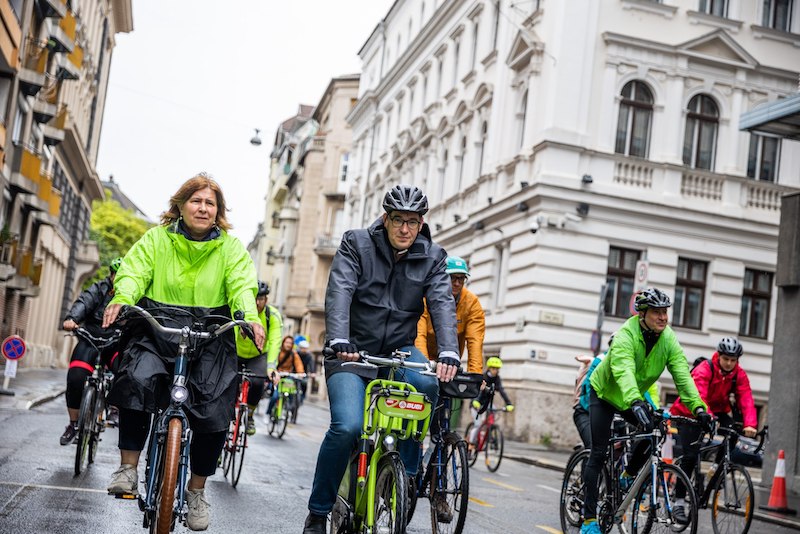After the full-scale war in Ukraine started, six biking organisations in Ukraine launched an international campaign #BikesForUkraine. Now they collect foreign donations to help deliver bicycles to war-torn communities. Initiative participant Maryna Bludsha tells more.
Why does Ukraine need more bicycles?
In times of hostilities, road networks and public transports system become ruined: some buses catch fire, or are stolen by invaders, such as in Kherson. Also, there’s often lack of fuel. Thus, a bicycle becomes the only reliable mode of transport. Right after Russia’s full-scale invasion began, we started receiving requests for bikes. People still need more than we can provide: as of June 11, we have given 1,391 bikes to local communities in Ukraine, but we have requests for 2,974.
We often give bikes to volunteers who distribute medicine, goods and food. Also, there are doctors, social workers and local authorities who need bikes. These are mostly from war-torn regions, but we also help other communities which have many internally displaced persons and need to provide more services.
Who provides the donations?
Most help comes from the EU countries, which includes 40 out of 50 of our key supporters, especially Germany, The Netherlands and Lithuania ― people or organisations help with either money, so we can to buy new bicycles in Ukraine, or they collect bikes from locals in their area. Often they also repair the bikes before sending them to Ukraine. Our Berlin partners, Changing Cities, have organised bike repair gatherings, so people could help Ukraine in this way.
In the first days of Russia’s full-scale invasion, Kyiv cyclists organised a volunteer service to deliver urgent aid. Do you know any other examples of how bicycles can be useful in war?
In Kyiv we have a bike courier company called CargoCult, which also delivers goods to people and organisations in need. Traffic in the city was jammed at checkpoints and in queues, and bikes turned out to be the fastest way to get around.


